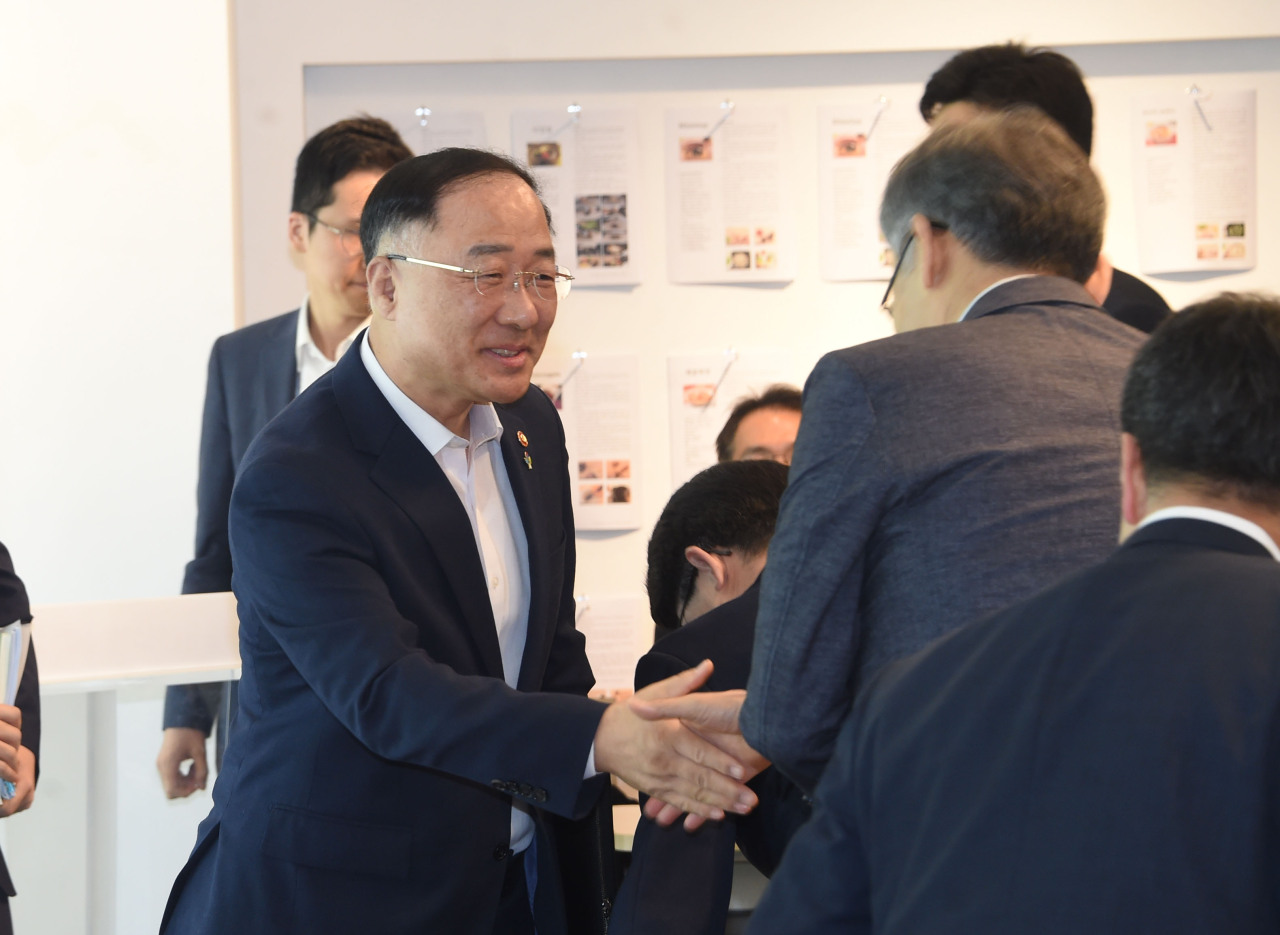The South Korean government said Wednesday it will inject 70 trillion won ($60.5 billion) into service industries over the next five years, centered on stimulating research and development and reducing the discrimination with the manufacturing sector.
“The advancement of the service sector is a matter of vitality in order for our economy to take a leap forward,” said Deputy Prime Minister and Finance Minister Hong Nam-ki, citing the high potential of the service industries in terms of added value and job creation.
“The value-added and employment of our service sector, however, is currently about 10-20 percent lower than the equivalent figures in key developed economies.”
The chief policymaker suggested four key strategic pillars: to resolve discrimination with the manufacturing sector, to build basic infrastructure for the service industry, to expedite the convergence and integration of the two sectors and to systematize the nation’s governance in step with the industrial requirements.
 |
Deputy Prime Minister and Finance Minister Hong Nam-ki (left) attends a policy meeting at the Seoul office of the Korea Tourism Organization on Wednesday. (Ministry of Economy and Finance) |
Hong’s remark was delivered in a policy meeting to seek economic vitality, a ministerial-level event held at the Seoul office of the Korea Tourism Organization.
“Today’s location is consistent with our policy purposes as the K-style hub here is where (visitors) may witness the convergence of promising service industries such as Hallyu, cultural contents and medical services with advanced technology,” the minister said.
In line with this service-focused perspective, the government has also decided to further specify its support plans for tourism, logistics, health care and cultural contents.
The upcoming economic policy direction announcement, slated for the first week of July, will define the four given businesses as the four most promising fields of the service sector, according to Hong.
As part of the midterm plan to spend 70 trillion won over the next five years, Seoul is to start by injecting 6 trillion won in state-led research and development, hoping the commitment will forge the necessary infrastructure and consequently expedite R&D investment in the private area.
Addressing the tourism industry, the deputy prime minister vowed to raise the tax refund ceiling for foreign tourists to 2 million won from the current 1 million won. He also said that administrative procedures will be pushed forward to ensure that a stalled amusement park project in Hwaseong breaks ground by 2021.
Meanwhile, the fiscal chief reiterated his call for the swift passage of the pending supplementary budget bill that deals with extra fiscal spending of 6.7 trillion won during the rest of the year.
“I am highly anxious that (the budget bill) has not even been put upon the table, while it should have been fully approved and effectuated by now,” Hong said.
“Should the budget bill be confirmed early next month, I will ensure that 70 percent or more of the extra budget is executed within the third quarter.”
By Bae Hyun-jung (
tellme@heraldcorp.com)




![[Herald Interview] 'Trump will use tariffs as first line of defense for American manufacturing'](http://res.heraldm.com/phpwas/restmb_idxmake.php?idx=644&simg=/content/image/2024/11/26/20241126050017_0.jpg)

![[Health and care] Getting cancer young: Why cancer isn’t just an older person’s battle](http://res.heraldm.com/phpwas/restmb_idxmake.php?idx=644&simg=/content/image/2024/11/26/20241126050043_0.jpg)

